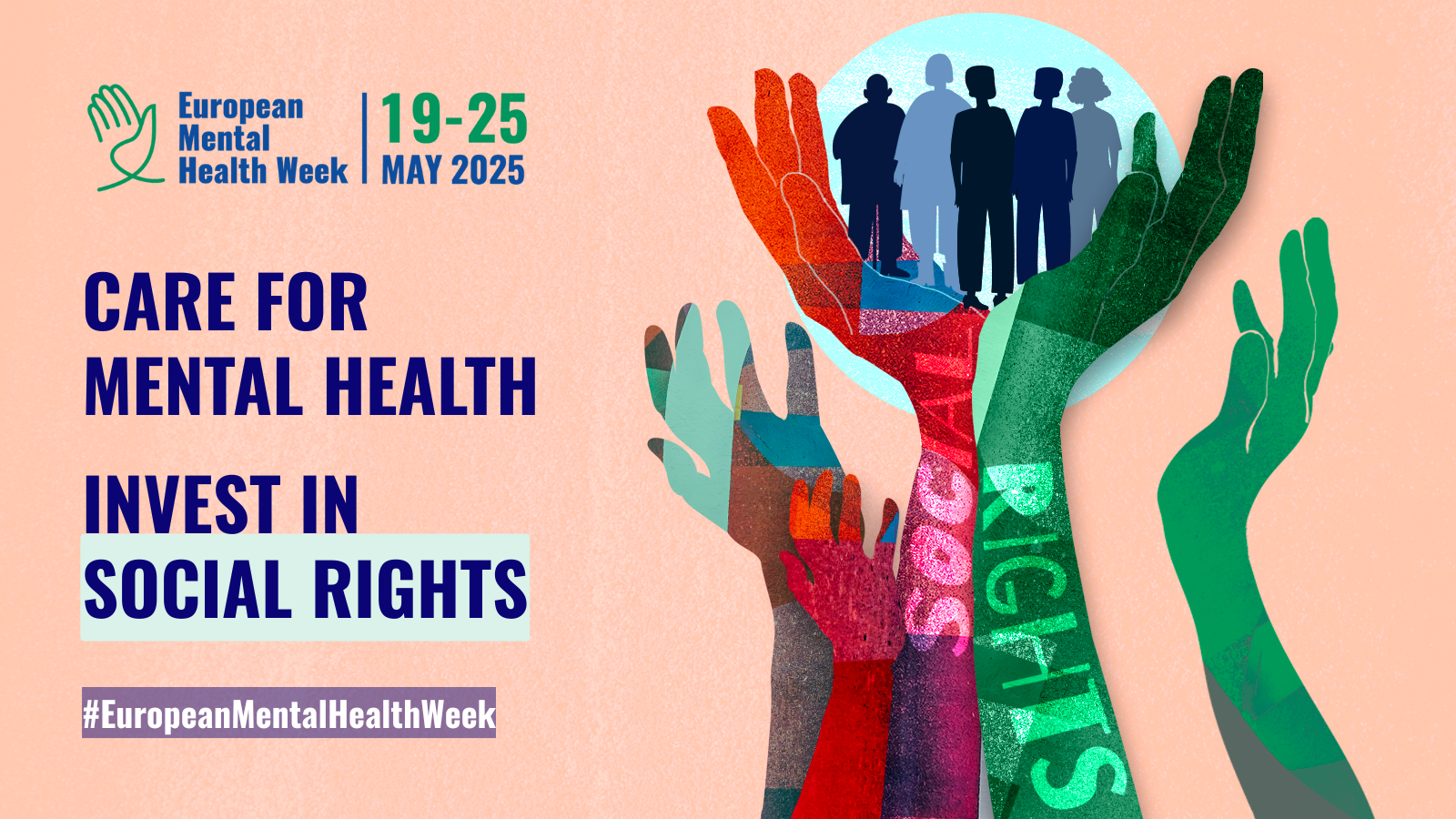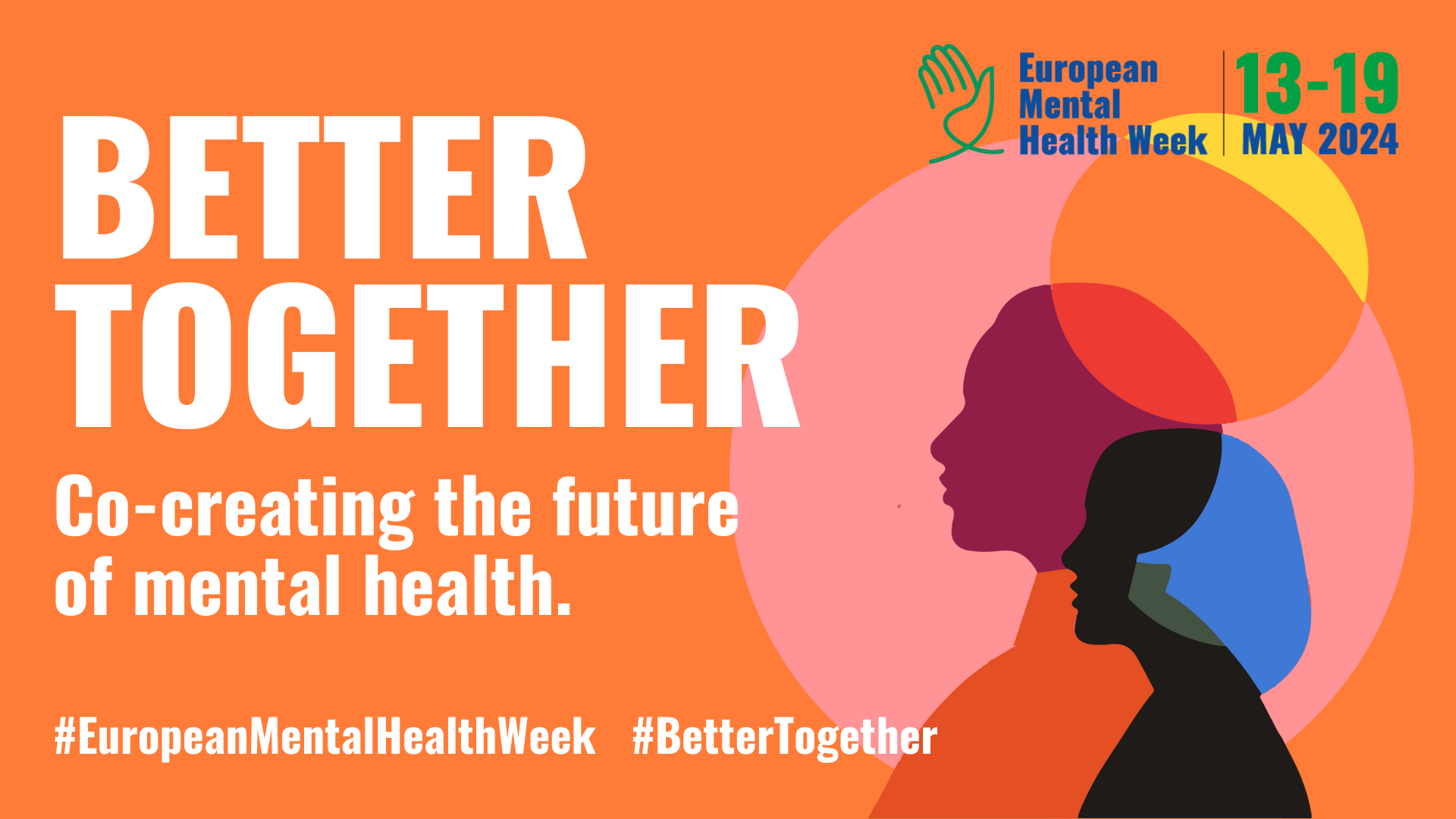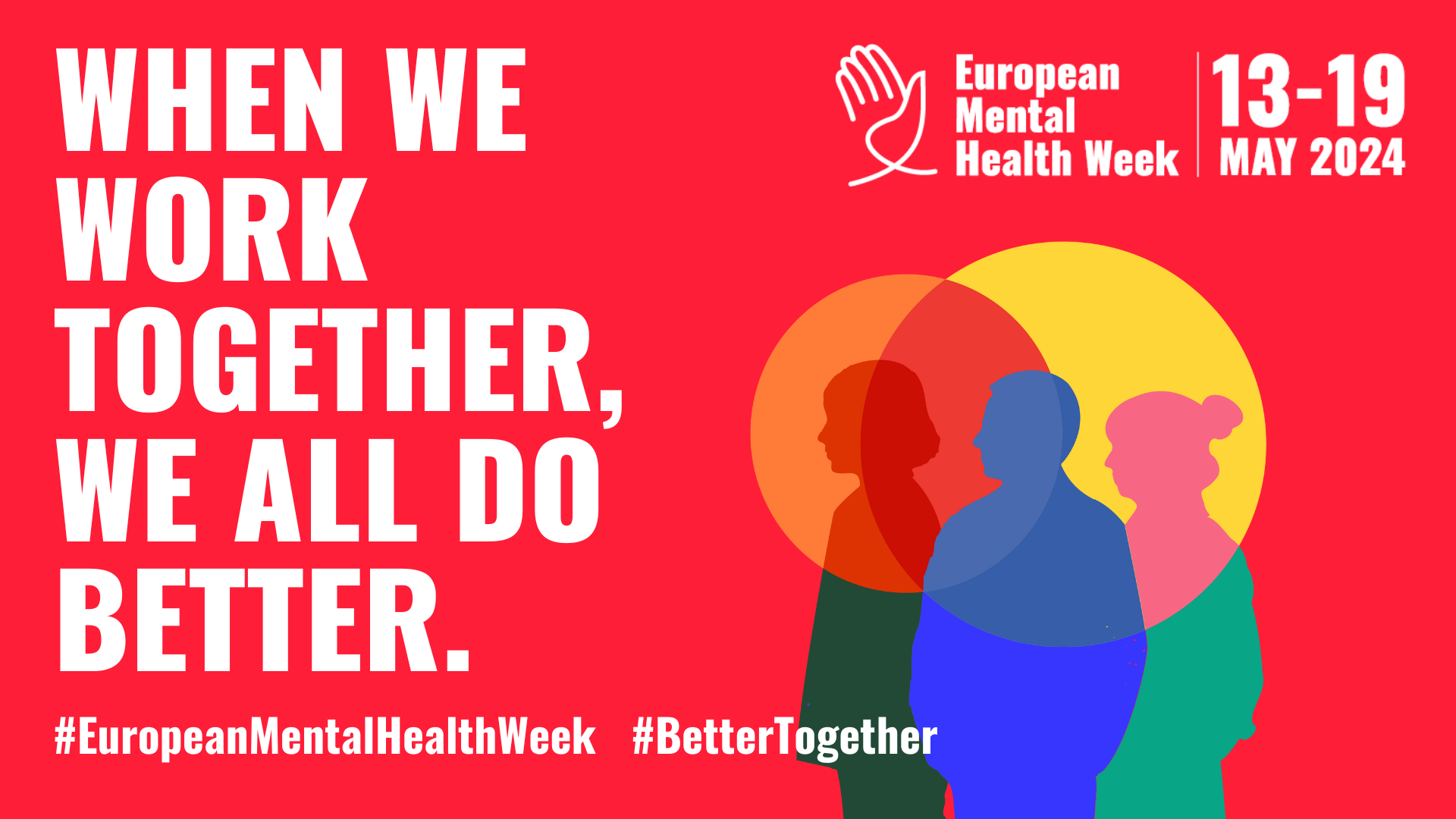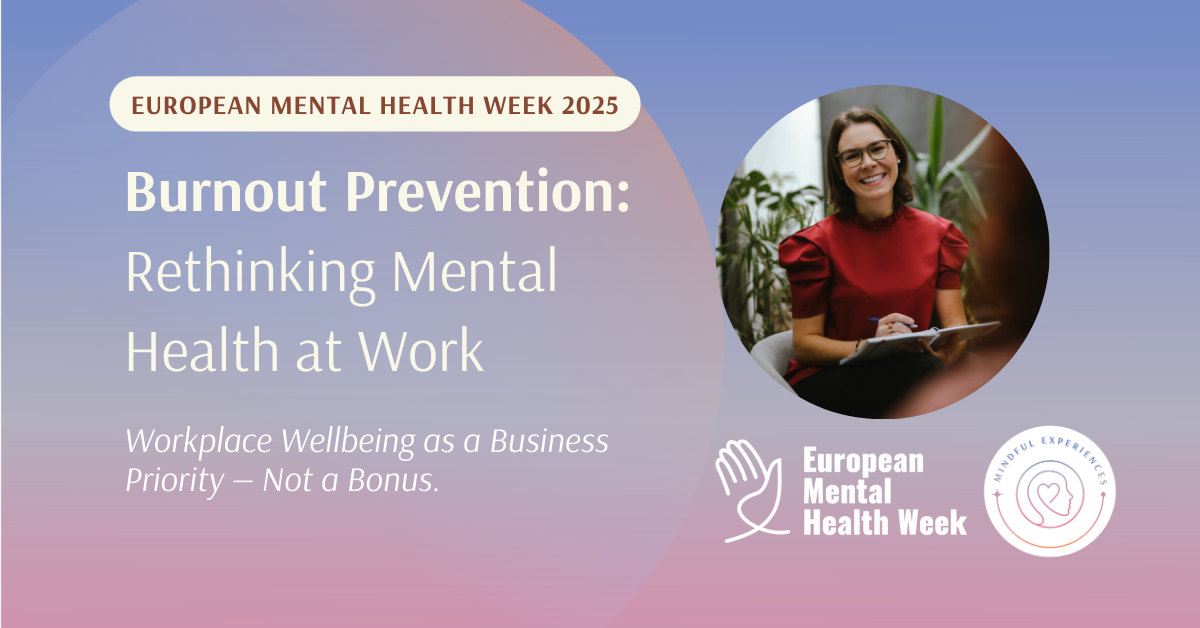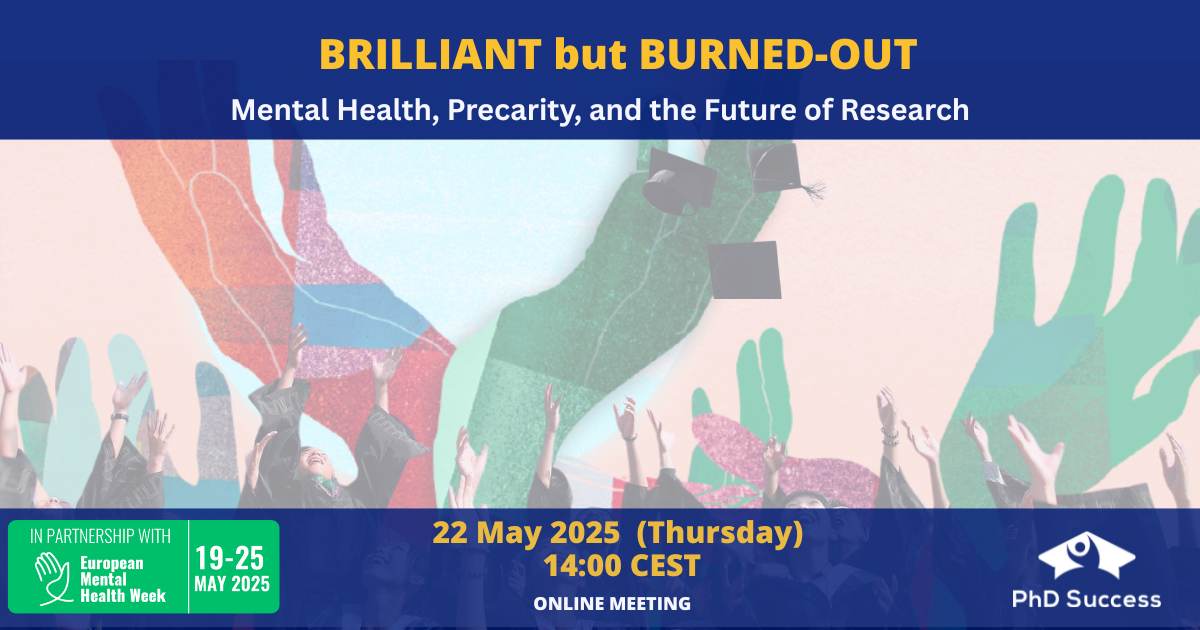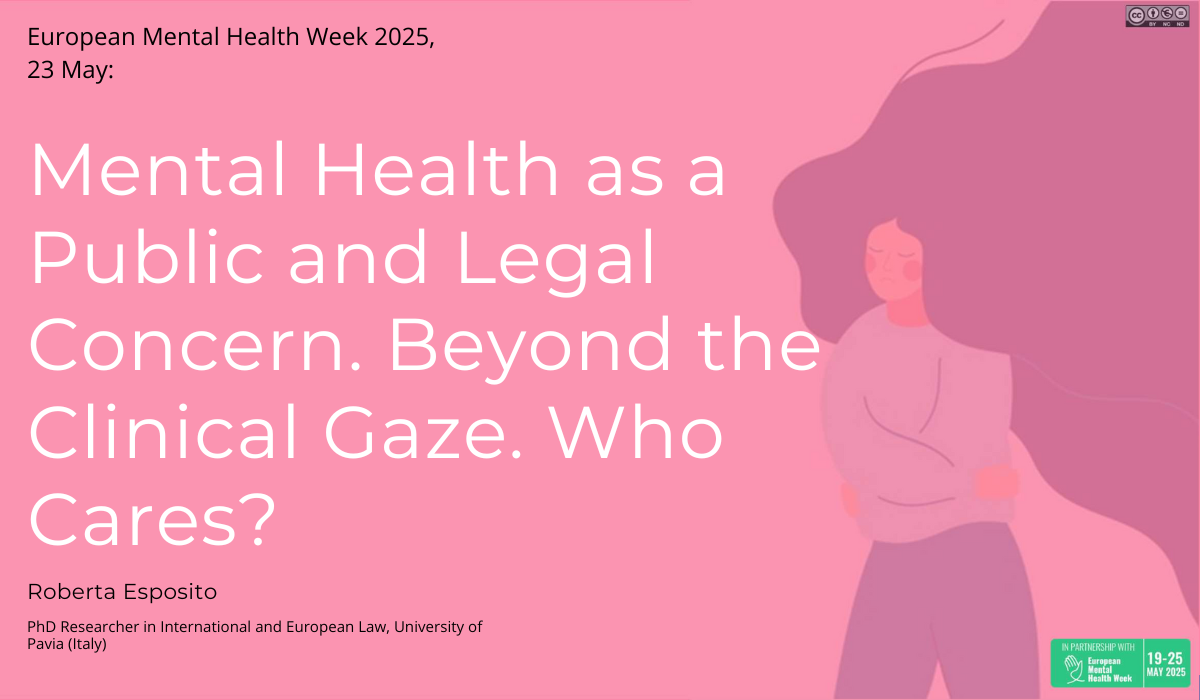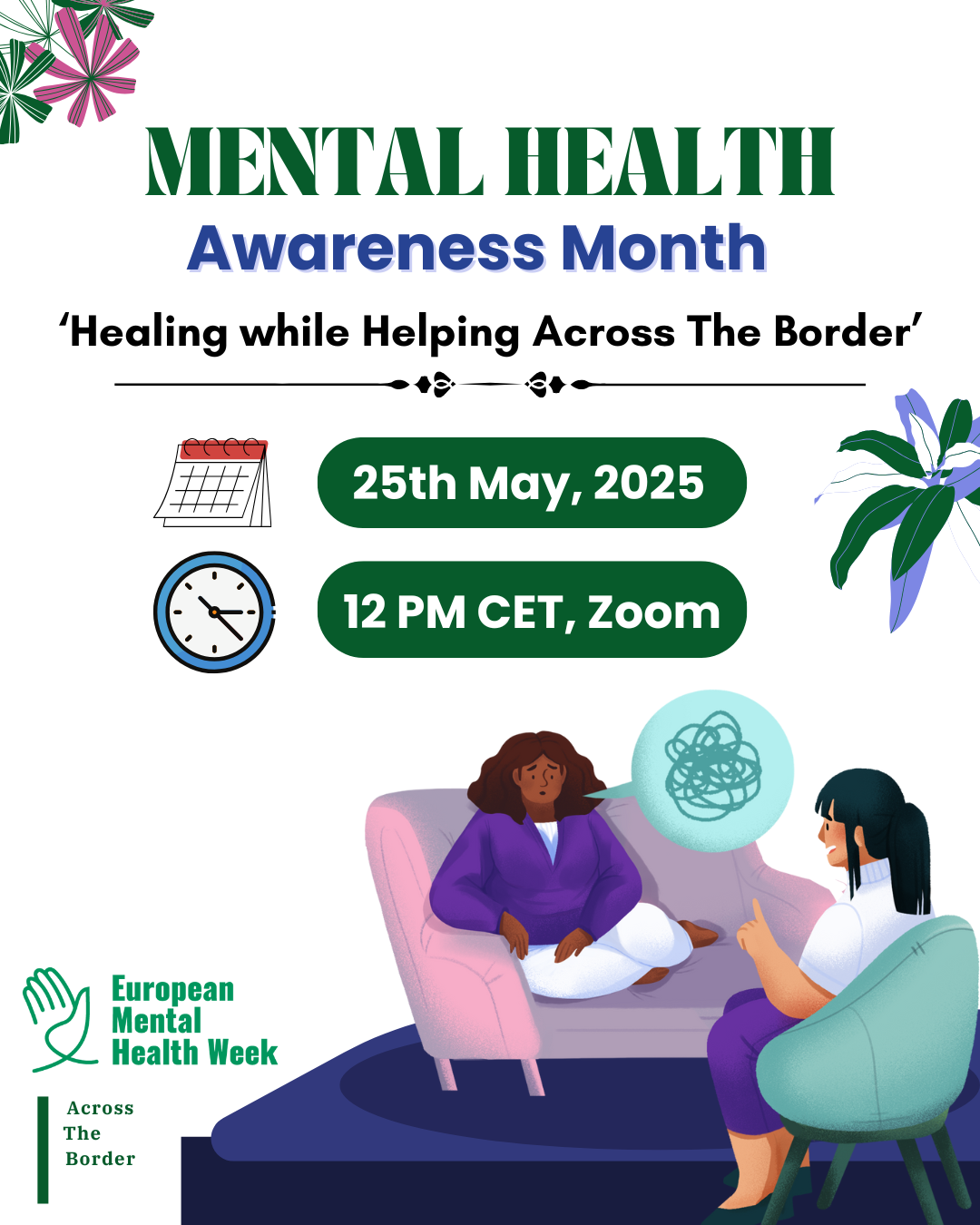European Mental Health Week, 19-25 2025
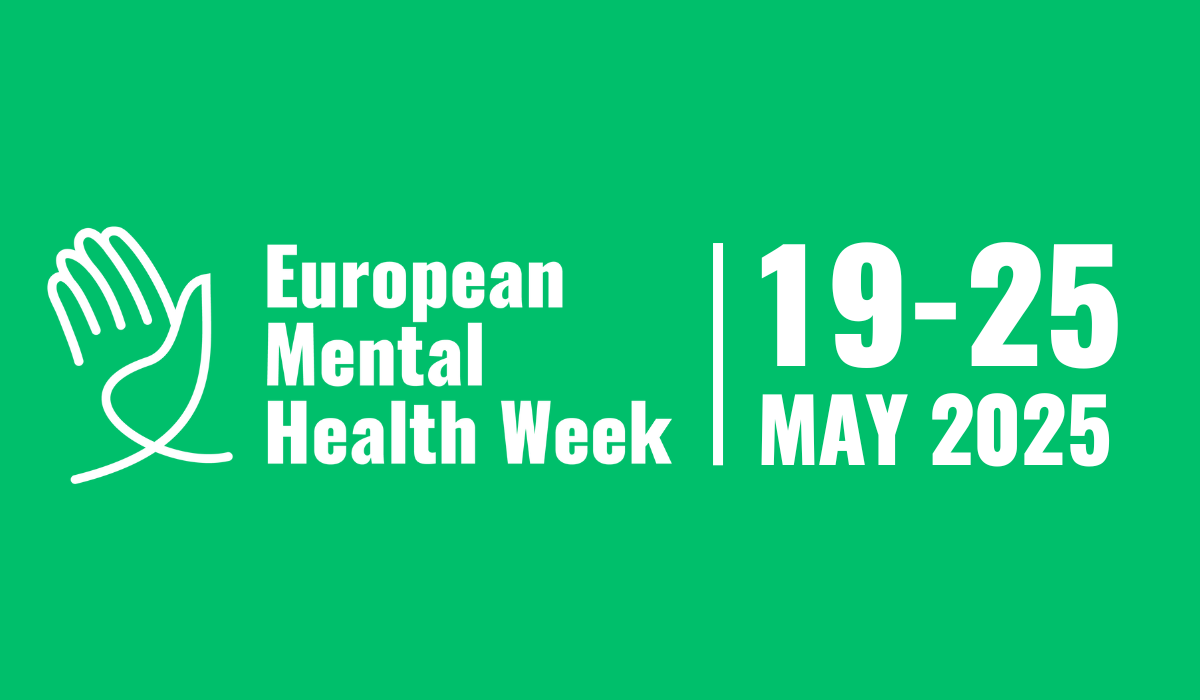
Why the week
Background
The European Mental Health Awareness Week builds on the long-standing global tradition of celebrating Mental Health Awareness Month in May. In the US, Mental Health Month was initiated by Mental Health America in 1949. It has been celebrated every year since with growing support from the public and policymakers, for over 70 years. In Canada, the Canadian Mental Health Association has hosted Mental Health Week during the first week of May for 70 years. In the UK, Mental Health Awareness Week has been run by Mental Health Foundation on the third week of May for over 20 years.
The facts
OECD: “Mental ill-health can have devastating effects on individuals, families and communities, with one in every two people experiencing a mental health [problem] in their lifetime. Mental ill-health also weighs heavily on societies and economies; the economic burden of mental ill-health can rise to up to 4% of GDP, and those with mental [ill-health] have poorer educational, employment, and physical health outcomes than those in good mental health.”
Our goal
The ambition of our Awareness Week is to promote and establish the European Mental Health Week as an annual pan-European mental health campaign celebrating the path to awareness and action.
2025's calendar of events
Week of Events
Why mental health matters in humanitarian aid
In the context of the European Mental Health Week, the Mental Health Youth Alliance will be releasing a video addressing other youth organisations. They are a youth network connected to […]
3rd Arts and Mental Health Festival in Aegina, Greece
The Art and Mental Health Festival, organized by the Greek Carers Network EPIONI, returns for its third consecutive year in Aegina, from May 22 to 24, 2025. Held under the […]
“Reaching Beyond Rare: Strengthening Mental Health and Wellbeing in Rare Disease Advocacy” Satellite Workshop to EURORDIS Membership Meeting
On 22 May 2025 in Riga, EURORDIS and Rareminds will host a peer training workshop titled “Reaching Beyond Rare: Strengthening Mental Health and Wellbeing in Rare Disease Advocacy”, aligning with this year’s European Mental Health Week theme: Care for mental health, invest in social rights.
Mental Health and Homelesness: a vicious cycle of powerlessness
Mental Health and Homelesness: a vicious cycle of powerlessness
Mental health is a fundamental human right – essential to well-being, community participation, and the ability to live with dignity. Yet, for people experiencing homelessness, this right is too often denied.
Săptămâna europeană a sănătății mintale: Sănătate mintală și drepturi sociale
Săptămâna europeană a sănătății mintale: Sănătate mintală și drepturi sociale
Vă invităm, în perioada 19-22 mai 2025, la Săptămâna sănătății mintale, ediția 2025, un eveniment dedicat conștientizării importanței sănătății mintale în viața de zi cu zi și promovării atitudinilor, practicilor […]
Unleashing the Power of Multidisciplinary Collaboration for Better Mental Health: lessons learned from exploring and implementing cross-sectoral mental health competency framework
Unleashing the Power of Multidisciplinary Collaboration for Better Mental Health: lessons learned from exploring and implementing cross-sectoral mental health competency framework
Mental health does not exist in isolation - it is shaped by social conditions such as poverty, inequality, employment, and education.
European Commission webinar on wellbeing, inclusion and school success: mapping your school’s journey
European Commission webinar on wellbeing, inclusion and school success: mapping your school’s journey
On the occasion of the European Mental Health Week 2025 (19-25 May), the European Commission is happy to invite you to discover its self-assessment tool on inclusion and wellbeing.
European Parliament Intergroup on Mental Health Event: Care for Mental Health, Invest in Social Rights
European Parliament Intergroup on Mental Health Event: Care for Mental Health, Invest in Social Rights
Mental Health Europe is happy to invite you to attend the first event Mental Health Intergroup event organised in the framework of the 6th edition of European Mental Health Week. […]
Making Mental Health Visible: Data as a Tool for Rights
Making Mental Health Visible: Data as a Tool for Rights
As part of EU Mental Health Week, we are launching two new dashboards — designed for ongoing updates to reflect Europe's evolving mental health landscape: One mapping the prevalence of mental health conditions and the stigma. One tracking policy action, including investment, service integration, and workforce capacity.
Mental Health of Ukrainian Academics in Times of War
Mental Health of Ukrainian Academics in Times of War
This webinar highlights the mental health challenges experienced by Ukrainian academics during the full-scale war. Based on empirical research and personal testimonies, the event explores how forced displacement, institutional collapse, […]
Building a more playful world: How humour can bring social change
Building a more playful world: How humour can bring social change
Organised by RED NOSES International, this discussion will explore diverse perspectives on how artistic interventions support mental health and drive positive social change. It will be published on their website […]
The Power of Multidisciplinary Collaboration in Mental Health Services: lessons learned from the European Programme for Mental Health Exchange
The Power of Multidisciplinary Collaboration in Mental Health Services: lessons learned from the European Programme for Mental Health Exchange
Mental health does not exist in isolation - it is shaped by social conditions such as poverty, inequality, employment, and education.
Effective Burnout Prevention Solutions for Mental Health at Work
Effective Burnout Prevention Solutions for Mental Health at Work
This webinar explores burnout as a systemic issue rooted in the way work is structured —rather than a personal failure to cope. Led by a burnout prevention specialist with lived experience of workplace burnout, the session will spotlight how employment conditions —such as long hours, job insecurity, toxic cultures, and inequality —deeply affect mental health.
Brilliant but Burned Out. Mental Health, Precarity, and the Future of Research
Brilliant but Burned Out. Mental Health, Precarity, and the Future of Research
Mental health among early-career researchers is a growing concern. Numerous studies show that PhD candidates are at high risk of developing issues such as depression, anxiety, and burnout.
Voices from the Ground: Investing in Social Support for Mental Wellness
Voices from the Ground: Investing in Social Support for Mental Wellness
"Voices from the Ground: Investing in Social Support for Mental Wellness" is a hybrid panel discussion organized by Afya Care Foundation during the European Mental Health Week 2025, under the […]
Let’s CEE! A Youth-Led Movement for Youth Mental Health in Central and Eastern Europe – Launching Event
Let’s CEE! A Youth-Led Movement for Youth Mental Health in Central and Eastern Europe – Launching Event
Let’s CEE is a regional initiative aiming to spotlight and transform the mental health landscape for young people across Central and Eastern Europe (CEE).
No Shame – Traveller Youth Mental Health Event
No Shame – Traveller Youth Mental Health Event
This event is an in person Traveller Youth Mental Health Event, This event includes workshops on Stigma and Empathy online and a range of panel speakers and takes Place in Athlone, Co Roscommon at the Technological University of the Shannon: Midlands
Mental Health as a Public and Legal Concern. Beyond the Clinical Gaze. Who Cares?
Mental Health as a Public and Legal Concern. Beyond the Clinical Gaze. Who Cares?
This presentation will critically explore the concept of mental health and its implications for law and policy.
From Digital Strain to Digital Strength: Rethinking Burnout Prevention in Healthcare
From Digital Strain to Digital Strength: Rethinking Burnout Prevention in Healthcare
Burnout among healthcare professionals has reached critical levels across Europe, driven by chronic workplace stress, heavy workloads, and systemic challenges that undermine wellbeing. As health systems struggle to retain and support their workforce, the question of how to effectively prevent burnout has never been more urgent.
Drugs, Rights, and Public Policy – Rethinking Substance Use and Mental Health Policy in Romania
Drugs, Rights, and Public Policy – Rethinking Substance Use and Mental Health Policy in Romania
This panel hosted by Choice brings together professionals from Psychology, Criminology, Public policy, and lived experience, as well as a Member of Parliament with a background in civil society, to […]
A tua Mente, os teus Direitos | Your Mind, Your Rights
A tua Mente, os teus Direitos | Your Mind, Your Rights
Taking place between 19th–25th of May 2025, "Your Mind, Your Rights" is a local initiative developed by Recovery Colleges Portugal in the context of the Eu Mental Health Week, aiming […]
Healing while Helping Across The Border
Healing while Helping Across The Border
Healing while Helping Across The Border is an open and welcoming online gathering for anyone who cares deeply—for others, for justice, for community—and is looking for a moment to care for […]
Why mental health
Change
There’s an urgent need to raise the general public and policymakers’ understanding about mental health, reduce stigma and change behaviours and attitudes.
Progress
We know more about mental health today than ever before. Armed with all the knowledge, progress can be made. Mental health support must be available for all.
Impact
In recent years, the World Health Organization and other UN agencies, European institutions and health ministries have recognised the urgent need for commitment and action on mental health. When our leaders speak up and take action, we can look towards a brighter future to move towards positive mental health.
Equity
More people in Europe have been negatively affected by the “polycrisis” and these numbers could increase as new crises emerge. Equitable access to mental health care can improve the quality of life for many and especially for people in vulnerable situations (children, young people, elderly, marginalised groups, etc.).
Stay connected
Get our latest news, personal stories, research articles, and job opportunities.
